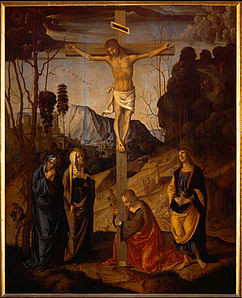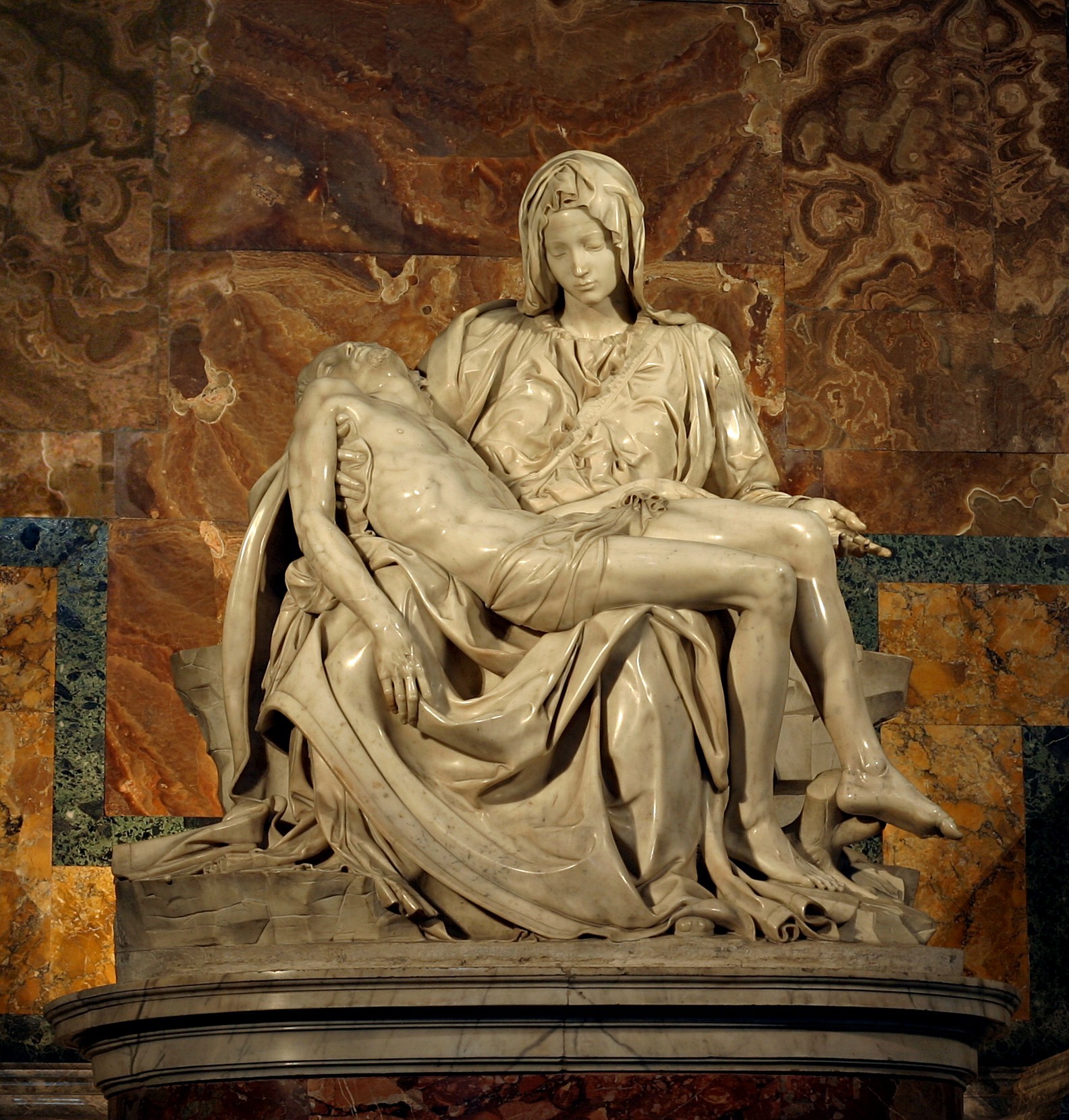As hard as we try, the auditorium sanctuary at Christmas, never measures up to the beauty and the festive nature of the church. So I added some friends to the Holy Family in front of the altar. They may not look like they belong there but who or what does?
About a
week ago, I began to hear and read about this year’s nativity scene, as it is presented
in St. Peter’s Square at the Vatican.
The news anchor of a popular Catholic television network called it
bizarre.
So, I
did some investigating and here is what I found out. Outside of the traditional
nativity figures of Mary, Joseph, the child Jesus, the Wise Men, shepherds, an
angel, and animals, the other figures of the nativity scene are represented in
the act of performing the 7 Corporal Works of Mercy. Surrounding the Holy Family, therefore, are
the following scenes:
·
A man imprisoned in a cell with one bar
– depicting not only physical imprisonment but the self-imprisonment of sin
·
A woman welcoming a homeless refugee
·
An injured man in conversation with
another man, depicting the necessary healing of both mind and body
·
A man who being given food and drink
stands in amazement at the generosity of these gifts
·
A wrapped corpse with its arm exposed
as it’s taken into a tomb
·
A nobleman dressed in fine clothes
giving his cloak to a naked man lying in the street.
·
In addition, the ornaments on the tree
were created by young cancer patients and children in areas effected by
earthquakes
The
reaction of this national catholic news anchor and some others was that people
want to reflect on the Birth of Christ, not these painful scenes. These images, they say, don't evoke a silent
night when all was cozy, calm and bright.
Still others fear that the Christ child was being eclipsed by these
other images; ignoring the savior, while positing that doing good works is the most
important means to salvation.
Any
critique of art, especially that depicting tenants of faith or theological
principals, is fair and appropriate. Art
is meant to evoke a reaction. Yet a
critique of this nativity scene ought not ignore the origins of the Christmas
Crèche or the Gospel proclamation of the mystery it depicts.
Saint
Francis of Assisi is credited with popularizing the tradition of the Christmas
crèche. The mystery of the incarnation,
is an underlying force in the spirituality of Saint Francis. God taking on human flesh, transforms all of
creation in the eyes of St. Frances. If
Jesus was a baby lying in a crib of straw – then then the stray, the crib, the
animals surrounding him and all things of our world are created anew. In the coming of Christ, the world is no
longer the place to which humanity was banished, after the fall in the Garden
of Eden, but where the living God chooses to dwell.
Saint
Francis is more than an ahead of his time, ecologist or animal lover; rather, he
understood profoundly what it means to say – in words of the John the Gospel
writer, “The word became flesh.” The
imagery of the nativity – an artistic expression of the Christmas mystery is
incomplete without, the crib, the straw, the animals and the real hardships of
humanity.
Perhaps
we have become too comfortable with the Gospel just proclaimed. We have lost
sight of the wet straw, the odor of the animals and presence of unkempt
strangers from the fields. The birth of
Christ can only evoke a sense of calm and peace, when we don’t deny the profound
depth of the incarnation and a broken world’s encounter with the living God who
establishes that peace.
In a
homily, during his time as the Archbishop of Munich, Cardinal Joseph Ratzinger,
now Pope Emeritus, Benedict XVI, spoke about what mean when we profess faith in
a living incarnate God.
It
means that God is not a conclusion we have reached by thinking… if it were just
a matter of that, then this God would never be more that a human idea…We cannot
define him in whatever way we like. He
has defined himself and stands now before us as our Lord, over us and in our
midst.
The
image of the nativity, and the account proclaimed in the Gospel, is not a story
of human creation but divine revelation.
It is not for us to say that our image of the new born king must not be
muddied by the sorrows of our time. The
birth of Jesus Christ, elevates humanity and all of creation from the mud. God chooses the mud. The entering of our God into the human
experience, gives meaning and purpose to our lives and unites we who are often
lost, together into one flock, with one shepherd.
The
other day I met up with an acquaintance someone who lives here in Hicksville
and ministers in a Christian church in Bowery section of Manhattan. Marveling somewhat at the number of people
who come to our masses on Christmas, he asked, “what do you say to all those
people?” “Just Jesus,” I said. In one mindset, it is hard to speak to the
experience of every person. The reality
is that the mystery we celebrate at Christmas, the incarnation of the divine,
speaks to the entirety of humanity on its own.
At the
inauguration of this year’s nativity in St. Peter’s square, Pope Francis said:
(The
nativity makes) more visible what is perceived in the experience of the birth
of the Son of God. (Calling it a) sign of the compassion of the heavenly
Father, of his participation and closeness to humanity, which experiences not
to be abandoned in the mists of time, but visited and accompanied, in their own
difficulties
The new
born savior is not eclipsed by the emotionally evoking images in St. Peter’s
square or the feeding trough, the straw, the nomad shepherds or the animals we
see in our own nativity scenes. We do
not lose Christ in the midst of addiction, terror, domestic violence,
infidelity, racism and bigotry. It is
for these things he came. And it is to
this saving mission of feeding the hungry, giving water to the thirsty,
clothing the naked, sheltering the homeless, burying the dead, and visiting the
sick and imprisoned that we are called, not to earn our salvation but reveal
the savior.
Gazing
on the crèche, the Holy Family and all its creatures and listening to the story
of the nativity proclaimed this night is not a unique Christmas
experience. It is what we celebrate each
and every Sunday. For the human family,
(the hungry, thirsty, poor, homeless, sick, imprisoned and the dying) gathers
around Jesus Christ not in a manger, but on the altar in the Holy Eucharist. For it is here in this church, on this altar
and at “Christ’s Mass,” that those who long for a savior and the communion of
others, encounter the living God, who comes first in the humble manger, to die
on a cross and abides now and forever, to redeem the world.
Merry
Christmas!
































